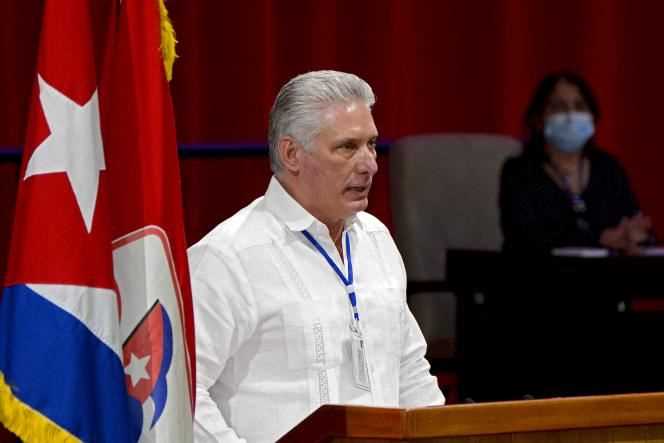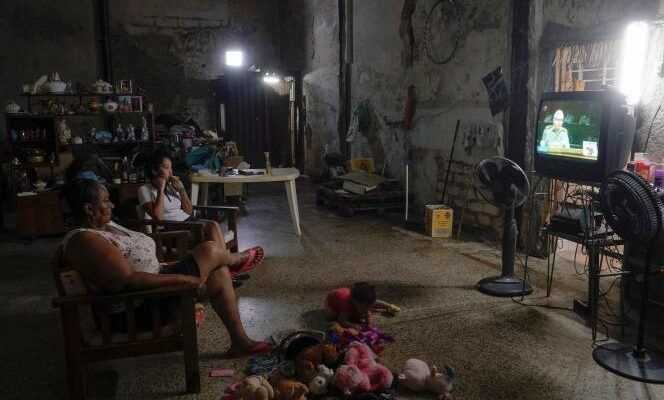American magazine Time wrote one day: “Fidel Castro is the heart, and Raul Castro the fist of the revolution. “ The heart stopped beating on November 25, 2016, and the fist was officially supposed to let go on Monday April 19, at the end of the 8e Congress of the Communist Party of Cuba (PCC) held behind closed doors for four days in Havana. In his opening speech Friday in front of the 300 delegates of the conclave, the one who was the eternal number two and minister of the armed forces for almost half a century in the shadow of his big brother confirmed, at 89 years old, that he was saying his political farewells and doing so to set an example. “I will continue to serve as a simple revolutionary fighter, he assured, ready to make my modest contribution until the end of my life. “
After Fidel, Raul thus passes the hand and gives up his seat of first secretary, the most important post in the hierarchy of the power, to Miguel Diaz-Canel, 60 years, current president of the island. In fact, and for the first time since 1959, Cuba will no longer be ruled by a Castro. A page of history which, in other circumstances, could have been striking but which, because of the context in which it turns, finds today a singular echo as the country seems to be looking elsewhere, absorbed by a vertiginous food shortage , a completely unprecedented pandemic, economic and social crisis.

Appointed interim president in 2006, following Fidel’s serious illness, the one Cubans then called “the Terrible”, or “the Little Soldier”, had very early on, already, inherited a country in bad shape. The financial manna of Venezuelan petrodollars had at the time become the alpha and omega of an entire island, hard hit by the drastic measures implemented by the regime during the so-called “special” period, that of the 1990s, after the fall of the Soviet bloc.
“We are not magicians”
In his speech given on the occasion of the national holiday of July 26, 2007, Raul promised to introduce “Structural and conceptual changes” specifying that “Not everything can be resolved immediately and we will not have to rely on spectacular solutions”. A warning repeated five months later, before the National Assembly where the younger brother of the Castros declared: “We are not magicians. “
Wise precaution. Despite the implementation of some cautious reforms, the lifting of certain bans weighing on the economy and a timid opening up to the private sector, the island’s situation has collapsed. Aid from Venezuela has dried up. The tightening of the embargo and the additional restrictions imposed by the Trump administration have had a devastating effect. The incredible heaviness and inertia of what the authorities themselves call the “internal blockade”, that is to say the proper functioning of the Cuban model, its slowness, its detours and its dead ends, also its black market and its pass-rights did the rest.
You have 56.81% of this article to read. The rest is for subscribers only.
